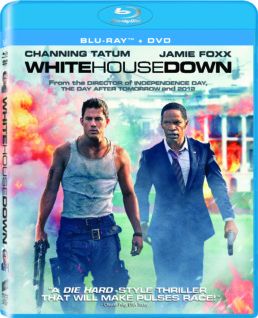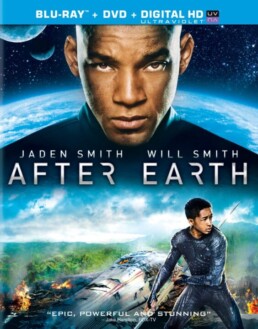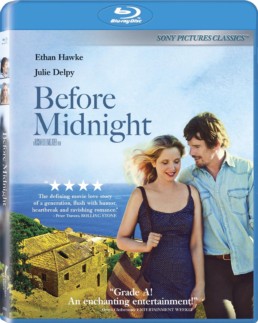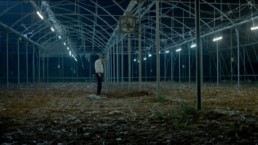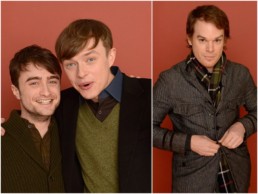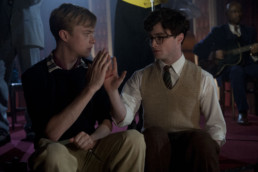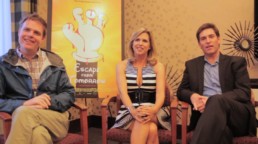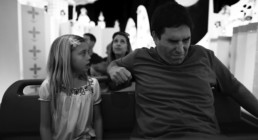'White House Down' Blu-Ray DVD
 Cinemacy is the site that keeps on giving! Rounding out our "Thanksgiv-away" series, we have one Blu-Ray DVD of White House Down (Channing Tatum, Jamie Foxx) to give away to one lucky fan. Here's how to enter:
Cinemacy is the site that keeps on giving! Rounding out our "Thanksgiv-away" series, we have one Blu-Ray DVD of White House Down (Channing Tatum, Jamie Foxx) to give away to one lucky fan. Here's how to enter:
1) Follow CINEMACY on twitter at @cinemacyspeaks, and
2) Answer the following question: If you lived in the White House, what one room would you make sure was in it? i.e. There is already a bowling alley in the basement!
3) Tag your answer with both @cinemacyspeaks and #cinemacy
All tweets must be sent by 6:59 p.m. on Friday, November 29th, 2013. One lucky person will be selected! And, go!
https://twitter.com/cinemacyspeaks/status/405176559029346304
OFFICIAL RULES
NO PURCHASE NECESSARY TO ENTER OR WIN: WHITE HOUSE DOWN_BLU-RAY giveaway. Contest is open to legal residents of the 50 U.S. states and Canada, age 18 or older at time of entry. Void outside the US and Canada where prohibited by law. Sweepstakes begins at 12:00 p.m. Pacific Standard Time (“PST”) on 11/26/2013 and ends at 6:59 p.m. (“PST”) on 11/29/2013. All entries must be made via Twitter. Winners must respond with their mailing address within 72 hours of being notified or an alternate winner will be selected. All federal, state and local regulations apply.
'After Earth' Blu-ray Combo Pack
Congratulations to Sarah, you're the winner of the "After Earth" contest! Check your email for further instructions. Thanks to all who entered, and keep your eyes peeled for our next contest!
 Just in time for Thanksgiving, Cinemacy wants to show you how grateful we are for your continued support by offering you a chance to win a Blu-ray™ Combo Pack (Including Blu-ray, DVD & Digital HD UltraViolet™) of this summer's sci-fi thriller, After Earth (starring Will Smith and Jaden Smith), with Bonus Features of an Alternate Opening & All-New Featurettes! What better way to bond with family over this Thanksgiving break than watch Father and Son Smith's fight for survival after eating your coma-inducing Thanksgiving meal?
Just in time for Thanksgiving, Cinemacy wants to show you how grateful we are for your continued support by offering you a chance to win a Blu-ray™ Combo Pack (Including Blu-ray, DVD & Digital HD UltraViolet™) of this summer's sci-fi thriller, After Earth (starring Will Smith and Jaden Smith), with Bonus Features of an Alternate Opening & All-New Featurettes! What better way to bond with family over this Thanksgiving break than watch Father and Son Smith's fight for survival after eating your coma-inducing Thanksgiving meal?
Here's how to enter!
In the comments section below, answer this question:
"What would you do if you survived a planet-ending disaster? For bonus points, who would be the one person you would want to live After Earth with?"
And be sure to follow CINEMACY on Facebook, Twitter, and Instagram for future contests, giveaways, and movie news!
Contest ends Sunday, November 24th, at 6:59 p.m. Winner will be announced Monday, November 25th, at 12:00 p.m.
Good luck!
Synopsis:
A crash landing leaves teenager Kitai Raige (Jaden Smith) and his legendary father Cypher (Will Smith) stranded on Earth, 1,000 years after cataclysmic events forced humanity’s escape. With Cypher critically injured, Kitai must embark on a perilous journey to signal for help, facing uncharted terrain, evolved animal species that now rule the planet, and an unstoppable alien creature that escaped during the crash. Father and son must learn to work together and trust one another, if they want any chance of returning home.
Blu-ray/DVD Combo Pack Special Features:
• “A Father’s Legacy” featurette – Will and Jaden Smith on and off screen
• “1,000 Years in 300 Seconds” featurette – On Location with the Cast
• “The Nature of the Future” featurette – A look at the landscapes and creatures of the film
• XPRIZE After Earth Robotics Challenge winning video – The reveal of the winning team's video, with an introduction by Jaden Smith as Kitai Raige
Blu-ray Exclusives:
All the added value on the Blu-ray/DVD Combo Pack, plus:
· A Never-Before-Seen Version of the Film’s Opening Sequence
· “Building a World” featurette – A glimpse into the creation of the After Earth universe
· “Pre-Visualizing the Future” featurette – A next-generation approach to action sequences
· “The Animatics of After Earth” featurette – Never-before-seen storyboards and animatics
OFFICIAL RULES
NO PURCHASE NECESSARY TO ENTER OR WIN: AFTER EARTH_BLU-RAY giveaway. Contest is open to legal residents of the 50 U.S. states and Canada, age 18 or older at time of entry. Void outside the US and Canada where prohibited by law. Sweepstakes begins at 2:00 p.m. Pacific Standard Time (“PST”) on 11/21/2013 and ends at 6:59 p.m. (“PST”) on 11/24/2013. All entries must be made via the comments section on this page. Winners must respond with their mailing address within 72 hours of being notified or an alternate winner will be selected. All federal, state and local regulations apply.
'Before Midnight' Blu-ray + Soundtrack Combo Pack
Congratulations to Bernie, you're the winner of the "Before Midnight" contest! Check your email for further instructions. Thanks to all who entered, and keep your eyes peeled for our next contest!
Continuing our "Thanksgiv-away" series, Cinemacy is offering one lucky winner a Before Midnight Blu-Ray DVD and Soundtrack Combo Pack! Director Richard Linklater (Dazed and Confused, School of Rock) completes the trilogy that started with 1994's Before Sunrise, starring Ethan Hawke and Julie Delpy with this acclaimed love story of a film. Win this Blu-Ray DVD, along with a 15 song soundtrack composed by Graham Reynolds, whose wonderful strumming score would be a treat to have in any car CD player while you battle that bumper to bumper freeway traffic!
Here’s how to enter!
In the comments section below, answer this question:
What is your favorite memory that you have in your life that has happened at Midnight?
And be sure to follow CINEMACY on Facebook, Twitter, and Instagram for future contests, giveaways, and movie news!
Contest ends Sunday, November 24th, at 6:59 p.m. Winner will be announced Monday, November 25th, at 12:00 p.m.
Good luck!
Synopsis:
It has been nine years since we last met Jesse and Celine, the French-American couple who once met on a train in Vienna. They now live in Paris with twin daughters, but have spent a summer in Greece on the invitation of an author colleague of Jesse's. When the vacation is over and Jesse must send his teenage son off to the States, he begins to question his life decisions, and his relationship with Celine is at risk.
OFFICIAL RULES
NO PURCHASE NECESSARY TO ENTER OR WIN: BEFORE MIDNIGHT_BLU-RAY giveaway. Contest is open to legal residents of the 50 U.S. states and Canada, age 18 or older at time of entry. Void outside the US and Canada where prohibited by law. Sweepstakes begins at 2:00 p.m. Pacific Standard Time (“PST”) on 11/21/2013 and ends at 6:59 p.m. (“PST”) on 11/24/2013. All entries must be made via the comments section on this page. Winners must respond with their mailing address within 72 hours of being notified or an alternate winner will be selected. All federal, state and local regulations apply.
Review: 'Big Bad Wolves'
This is one fairy tale you wouldn't want to tell your kids before tucking them into bed at night. In fact, that motivation served as the inspiration behind the conceiving of this horror story from acclaimed Israeli filmmakers Aharon Keshales and Navot Papushado, Big Bad Wolves. As Keshales noted before introducing the film, screening in the Midnight series at this year's AFI Film Festival, they decided to "write a revenge film against their parents, a very grim fairy tale to teach them all a lesson." What transpires onscreen is just that, in this twisted horror story where pedophilia is the evil of the movie.
Marrying torture porn elements with darkly funny moments (in which the filmmakers encouraged the audience to laugh), this story of a young girl's brutal murder, and of the rogue detective and mad father who attempt to bring a suspect to justice, is a wild, if not altogether too tame, outing for the unnerving.
Wolves achieves its balance of brutal blows, along with the many moments of humor, which add to the film's absurdity.
Perhaps most interesting about Big Bad Wolves is its combination of tonal elements, altogether unseen in mainstream American horror films, and saved for B-rated gross-out Midnight flicks. And while watching such a horrifying moment as the tracking shot of gummy candy trail in a forest, leading to a chair of a tied up and lifeless young girl, is as unsettling to see as are the scenes of a suspicious schoolteacher being savagely tortured for information of the girl's, let's say, further remains, the film as a whole could have benefited from even more consistently disturbing action, in the vein of unsparing Grindhouse fashion.
Though it should be noted that, like Wolves, the filmmakers' previous horror success Kalevet (Rabies, in English) stood alone as a groundbreaking movie in Israeli horror, previously unseen in its own much more conservative culture. In this regard, Wolves achieves its balance of brutal blows, along with the many moments of humor, which add to the film's absurdity. What results is a film whose net is cast wide, covering, ultimately, enjoyable ground. But when you make a horror fairy tale of a film about the twisted nature of pedophilia, it would certainly benefit the film to fall a little further down the rabbit's hole.
https://www.youtube.com/watch?v=GsfzhiW5l8c
Daniel Radcliffe, Dane DeHaan, and Michael C. Hall on 'Kill Your Darlings'
[soundcloud url="https://api.soundcloud.com/tracks/115868588" params="color=ff5500&auto_play=false&hide_related=false&show_artwork=true&show_comments=true&show_user=true&show_reposts=false" width="100%" height="100" iframe="true" /]
As beat poets, Allen Ginsberg, Lucien Carr, and David Cammerer were set on destroying the old, formulaic, rules of the then-traditional literary world, and create a "New Vision" of expansive, free form, truthful language. In the 60's counter-culture set biography/murder mystery, Kill Your Darlings, Daniel Radcliffe, Dane DeHaan, and Michael C. Hall play the aforementioned roles, respectively, and bring a commanding life to each of the real-life characters. At a Four Seasons press conference, I learned how each actor prepared for their roles, and how the famous literary icons' writing inspired them.
DANIEL, WHAT HAS THE JOURNEY BEEN FOR YOU, FROM CHILDHOOD ACTOR TO MORE ADULT ROLES?
DANIEL RADCLIFFE: Since finishing [“Harry Potter”] there’s been a huge journey for me, like, I had never worked with different crews before or different actors before… doing Kill Your Darlings was a huge thing for me because I wasn’t going to be working with anybody I knew. It was like starting fresh in a way, and that was really exciting.
LIKE THE BEAT POETS YOU PORTRAY, DID YOU HAVE ANY ANGSTY WRITING AND THOUGHTS THAT YOU PUT DOWN?
MICHAEL C. HALL: I definitely have some journal entries…
[LAUGHTER]
MH: They’re ultimately just run-on sentences.
DR: Yeah I definitely wrote my fair share of real bad poetry from when I was about 13-18… Some of mine were actually published under a fake name when I was 17. Don’t look them up.
[LAUGHTER]
DANE DeHANN: Yeah, also guilty of teenage poems of trying to achieve naked self-expression.
WHY DO YOU THINK THE BEAT POETS HAVE THAT "STAYING POWER?"
DD: I think their affect on today’s society is kind of amazing. Their books are still celebrated and read, they were the original hipsters. In where I live in Williamsburg/Brooklyn, I can’t walk down the street without seeing at least 10 people dressed exactly like Jack Kerouac.
[LAUGHTER]
DD: It’s insane. Their books obviously have this huge impact and also what they stood for, how they dressed, all of that still resonates today.
IS THERE ANY DIFFERENCE IN PLAYING CHARACTERS IN THE 1940'S AS OPPOSED TO CONTEMPORARY CHARACTERS?
MH: Yeah, the script is so well rendered that a lot of it could be unconscious, you could [easily] give over to living in a world that is contextualized in a totally different way… I was excited more specifically, about the opportunity to humanize and sympathize [with] this guy who’s sort of a footnote of the beat generation and was, if anything, characterized as a bit of a 2 dimensional villain/stalker. I liked that the movie aspired to round him out a bit, and that was appealing.
DR: Allen [Ginsberg] is one of the characters that is probably easiest to find empathy or compassion with. There are moments where he’s so easily manipulated by Lucien where there’s a part of you that wants to shake him. Also John [Krokidas, Director] took the pressure off by telling us not to really research our characters too much past the point where we find them in the movie, so there wasn’t really a sense that we were having to live up to the icons they became.
DD: Yeah Lucien’s a tricky one because Lucien worked so hard to make sure this story was never told. My responsibility is to honor this person by trying to figure out truthfully who they were at this point in their life, not necessarily how Lucien would want himself to be portrayed in the film.
WAS THERE ANY SORT OF RESEARCH YOU DID INTO THE TIME PERIOD?
DR: The thing I found really helpful was [listening] to music of the period. I listened to a lot of Jo Stafford, who I had never come across before, and his songs “No Other Love” and “You Belong to Me.”
AS ACTORS, ARE YOU EXCITED ABOUT THE OPPORTUNITY THAT YOU CAN TAKE TO CHALLENGE THE RIGID, MORE FORMULAIC PARTS OF THE FILM INDUSTRY WITH SOME OF THESE ROLES YOU'RE TAKING?
DR: I’d like to think that if the choices I make are slightly unexpected or challenging people then that is good. I don’t know if it’s like we’re railing against the industry but I also do think that that we [Dane & Michael] are fairly right-minded people in terms of what we value in scripts and storytelling.
'Kill Your Darlings' is a Love-Letter to the Beat Generation
Keen on dismissing the past, more formulaic and expected rules of the old literary writing method, the famous 60's beat poet Allen Ginsberg was set on creating a "New Vision" of language, full of confronting fragrances that re-birthed the once dull and dead language into one, fresh and alive.
Daniel Radcliffe might've taken a page out of Ginsberg's book in deciding his post-Wizardry film projects.
In the Ginsberg-entering-college set Kill Your Darlings, Radcliffe assumes the role of the bohemian writer as the young, unlearned student in his first year at Columbia University, which proves an interesting time to set a biopic about a person whose fame had come much later, with writing efforts including the definitive poem "Howl." But the decision is made by screenwriters Austin Bunn and John Krokidas, with Krokidas directing, to set this movie in this chapter of Ginsberg's life in order to introduce perhaps the most influential figure to shape his romantic view. That person is Lucien Carr, one of the earliest champions of "The New Vision," which included a friendship with Jack Kerouac as well. Curiously, history books have little to no recording of Carr's involvement in this monumental period in writing history, or that he existed at all. Which means that we didn't know that Carr was once Ginsberg's roommate, potential love interest, and an alleged murderer.
Played with laser-like intensity that continues to captivate, Dane DeHaan plays the free-spirited and rebellious Carr, such a fixating young romantic himself that he draws in all wanting men around him. If one-third's ingredients of the movie is a new-jazz biography, the other two-thirds are romance and murder/mystery, making for deliciously appealing movie-making, and watching.
This love-letter to the beat generation imagined by Krokidas and Bunn (not coincidentally, film school college roommates themselves) is such an adoring ode to this romantic period that simply watching the film feels as educational as it does entertaining.
Radcliffe and DeHaan, both young talents with heavy-lifting franchise experience (DeHaan will be seen in next year's The Amazing Spider-Man 2), prove that they have both the chops and, ahem, manhood, to slide into trickier, more demanding roles. As young, troubled teens confronting issues of homosexuality, the risky fare here is tested in only how well Krokidas gently guides the relationship and how the actors attempt to find the truths in them. Radcliffe shows once again his fearlessness though publicly expressed as nonchalance, in committing to scenes depicting male intercourse.
That Carr dismisses his homosexuality is what leads to the film's larger plot, in which the much older male figure David Kammerer (Michael C. Hall), continually tormented by his rejection of his once young partner Carr, ultimately is met with tragic circumstances. In this real-life event, it is Ginsberg that is met with the decision of whether or not to move forward with helping cover up a murder that may or may not have rippling consequences of his own.
The film runs in a well-measured spurt. Only that competing elements of the story are inevitably needed to be drawn in which to authentically and fully tell this true story are what make the film appear as broad, self-contained, strokes on a canvas, rather than a more specifically focused composition. In needing to show Ginsberg's sickly mother, his voice-over poetry, the drug-laced counterculture, and the joining of the young great minds of the beat movement, by the time the murder mystery comes around, it only feels like another card being stacked.
Though some extra ingredients of the recipe appear to boil over, it seems the only testament to how good a meal the filmmakers wanted to make. This love-letter to the beat generation imagined by Krokidas and Bunn (not coincidentally, film school college roommates themselves) is such an adoring ode to this romantic period that simply watching the film feels as educational as it does entertaining. Adding to the popping aesthetics of the counter-culture feel is (I am remiss to mention this late in the write-up) the always fantastic Ben Foster as a spaced-out William Burroughs, and Jack Huston, as a lived in Jack Kerouac, both adding integral flavors that compliment the group chemistry with Radcliffe and DeHaan and the picture as a whole.
In fact, it was the great William Faulkner that once said that "In writing, you must kill your darlings." Meaning, to be a great artist, you can't simply tread in the successes of your idols. In scope, these fine actors and filmmakers appear to walk away having done just that.
https://www.youtube.com/watch?v=AxGgkEHmHHg
Randy Moore, Roy Abramsohn, and Elena Schuber of 'Escape From Tomorrow'
Our exclusive video interview with Escape From Tomorrow's writer/director Randy Moore, Roy Abramsohn, and Elena Schuber! We talk about the unbelievable production and how Roger Ebert tweeted it as the most buzzed about film at this year's Sundance Film Festival.
http://www.youtube.com/watch?v=ENGUZ3vxMPo
00:24 : What is the film about?
01:24 : What was the production like?
02:52 : What was the experience like bringing the film to Sundance?
05:58 : Did you ever think that this movie might not end up seeing the light of day?
07:34 : Were there any edits made between the Sundance and theatrical releases?
08:51 : What's your favorite Disneyland ride?
'Escape From Tomorrow': Shot Guerrilla-Style on the Grounds of Disney
When you hear the words 'fantasy' and 'Disney' together, you definitely won't think of what you're about to see in this film.
Morphing nightmarish faces. Sexual perversions of giggly underage girls. Sci-fi benders of mind-controlling corporations. Until now, these elements had nothing in common with the Disney brand. Now, thanks to writer/director Randy Moore and his daring cast and crew, these things have all come together in a movie that you will not soon forget exists. Escape From Tomorrow is one of those movie's you need to see to believe.
The most prominent water-cooler conversation that will arise from this film is likely to be that the majority of the movie was filmed inside the actual park of Disney World (and Land), without the House of Mouse's knowledge. As a guerilla-shot feat, using prosumer aimed Canon 5D digital SLR cameras with minimal audio recording, the attempt is made (and achieved) to pull off a feature film production in the famed theme park. And yet...
Further propelling the film into buzz-worthy territory is the psycho-sexual dips into madness that beset the film's narrative that manipulate the iconography of the theme park that we all know and love. When grouchy father Jim (Roy Abramsohn) takes his vacationing family to the Happiest Place on Earth, demons from his personal life slowly infiltrate the Magic Castle's walls to find him, be it in the transforming evil faces of the international animatronics in It's A Small World or in the very nude woman who appears on another ride.
Further propelling the film into buzz-worthy territory is the psycho-sexual dips into madness that beset the film's narrative that manipulate the iconography of the theme park that we all know and love.
Included in its larger narrative is an even weirder plot of the park's princesses as high-priced escorts, mysteriously threatening illnesses, and secret corporations controlling memories and happiness. I can only imagine work on Monday morning in Disney's Legal Department when they heard about this movie.
Coming out of Sundance Film Festival earlier this January, the film became one of the must-see/must-talk-about films, even garnering rave reviews from the now deceased, legendary film critic Roger Ebert. However, nobody thought that Disney would let it out alive to find any chance of distribution for a larger audience to see.
And yet...
There is so much to love about this movie. While as a "movie," it might suffer from a semi-aimless structure, at least until the second half, when the crackpot craziness comes flying fast and hard. But I contend that this movie should be appreciated in its own right, as an entertainment experience that centers around its mythological production. Stellar black and white cinematography by director of photography Lucas Lee Graham and a wonderfully appropriate dark fantasy soundtrack composed by Abel Korzeniowski definitely lift the film, giving it a stronger cinematic experience.
Escape From Tomorrow should definitely be included on your films to see this year, as its very existence should alone be appreciated. A glorious achievement that would best play to midnight audiences looking for a fun B-grade alt-art movie, the film is sure to excite all audiences.
Well, maybe not for Mr. Mouse and company...
https://www.youtube.com/watch?v=1nfU_5NWBoE

